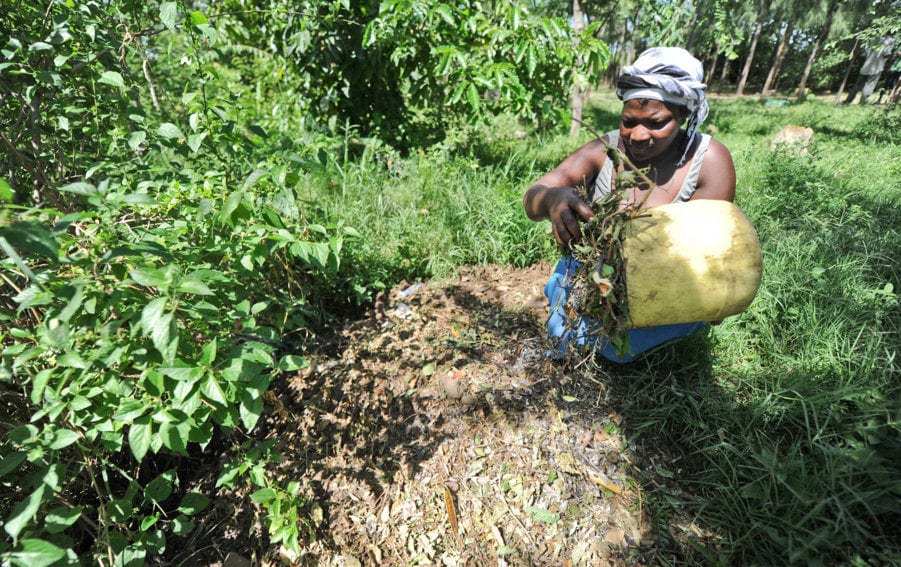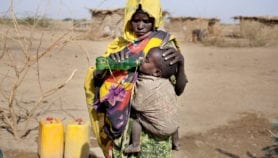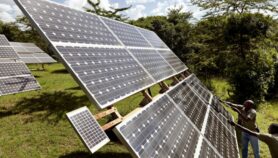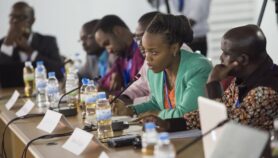By: Gilbert Nakweya
Send to a friend
The details you provide on this page will not be used to send unsolicited email, and will not be sold to a 3rd party. See privacy policy.
[NAIROBI] Four research consortia aimed at tackling impacts of climate change in major hotspots in Africa and Asia have received a funding boost from Canada’s International Development Research Centre (IDRC) and UK’s Department for International Development.
The consortia, funded under the Collaborative Adaptation Research Initiative in Africa and Asia (CARIAA), will receive 70 million Canadian dollars (around US$63.3 million), according to a statement from the IDRC released this month (7 March).
“This initiative will take a new approach to understanding climate change and adaptation in Asia and Africa,” says Jean Lebel, the president of IDRC.
“This initiative will take a new approach to understanding climate change and adaptation in Asia and Africa.”
Jean Lebel, Canada’s International Development Research Centre (IDRC)
The consortia are Pathways to Resilience in Semi-Arid Economies (PRISE); Adaptation at Scale in Semi-Arid Regions (ASSAR); Deltas, Vulnerability, and Climate Change Migration as Adaptation (DECCMA) and Himalayan Adaptation, Water and Resilience. The consortia will address three hotspots of climate change such as semi-arid regions, river basins, deltas, and glaciers.
In Africa, PRISE, ASSAR and DECCMA will address climate change problems in the Volta and Nile River deltas and semi-arid regions in East, West and Southern Africa.
According to the statement, African institutions partnering foreign counterparts include the University of Dar es Salaam in Tanzania, the University of Ghana, the University of Cape Town in South Africa and the National Authority for Remote Sensing and Space Sciences in Egypt.
Magori Wambura, a master’s student in climate change and sustainable development at the University of Dar es Salaam, says the grant will enable African countries to know vulnerable communities and share information and knowledge on climate change mitigation and adaptations strategies.
Wambura, however, urges African countries to invest in building local capacity to boost such initiatives. “Lack of experienced climate change experts and the inability of most communities to differentiate between environmental and climate change issues will be a challenge as collection of data may become difficult,” he explains.
He also calls for the incorporation of women issues into climate change adaptation projects.
Alice Kaudia, environment secretary, Kenya Ministry of Environment, Water and Natural Resources, welcomes the initiative, adding that because Africa largely depends on natural resources, conservation is critical.
Shem Wandiga, director, Institute for Climate Change and Adaptation, University of Nairobi, Kenya, notes that it is good to have external funding to address climate change, but urges African governments to invest in climate change programmes holistically. “Climate change should be addressed at all levels and departments in government ministries as the effects affect all,” says Wandiga.
Innovations such as improved sweet potato and maize varieties to help farmers cope with the adverse effects of climate change in Southern Rift Valley in Kenya are already being funded by the IDRC.
Emily Kokoyo, a Kenya-based smallholder farmer, says that fast-maturing sweet potato vines have helped her significantly. “My yields from only potatoes have provided me with start-up capital for my [retail] shop here,” Kokoyo tells SciDev.Net.
This article has been produced by SciDev.Net's Sub-Saharan Africa desk.














